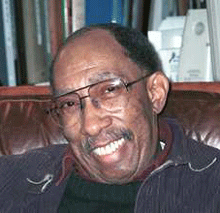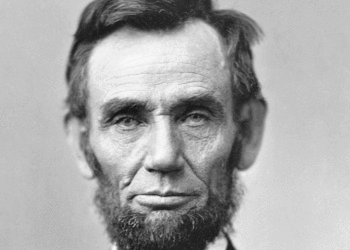At 77, the author is sometimes short of breath, but never short of spirit
(Editor’s note: One of the pleasures of social media is to read, and respond, to the reflections of a great writer. Celebrated author Julius Lester has a large appreciative following on Facebook, where he recently posted this essay. The American Jewish World is grateful for his cooperation.)
By JULIUS LESTER
I go to bed around six a.m. This morning, however, I had to be at the hospital by 7:15 for a pulmonary function test (PFT), which meant I slept for an hour sitting in my overstuffed chair, which was enough of a nap to get me to the hospital and back safely.
Personal Reflections
I had not had a PFT since 2000, when I was officially diagnosed with emphysema, though I had been living with it since 1991. Emphysema is one of those conditions to which moral censure is attached. People with emphysema get no sympathy because we smoked, and therefore we have no one to blame but ourselves.
That there are additives in tobacco to ensure addiction, and that it is easier to get off heroin than it is cigarettes are facts people don’t know or choose to ignore. I stopped smoking in 1988, one of the most difficult and painfully agonizing things I have ever done.

Recently, I’ve had to start wearing oxygen in public, because my oxygen saturation drops below 88, and breathing is painful when I walk a short distance. Walking around with an oxygen tank and a cannula is like carrying a neon sign advertising that I was a smoker. Some people are so rude as to ask me, “Oh, were you a smoker?” and they bask in their own feelings of superiority.
There are those who see the oxygen and, afraid that I am going to fall over dead that very minute, rush to get out of my way. Others seem to think my muscles have atrophied, and they hurry to open doors for me. Some feel compelled to say, out of the blue, “Good luck to you, sir.” But I’m not sick. Most people take a pill or two to correct some imbalance in their bodies, wear glasses, have artificial hips or knees. My lungs are impaired, so I need artificial oxygen.
I am no longer self-conscious in public carrying oxygen. The condition of my lungs does not define who I am, but I went through a period when it threatened to. I berated myself for having been a smoker. I desperately wished I could reverse time. I thought my life was over, and I became depressed.
From 1992-2005, I served as lay religious leader at Beth El Synagogue in St. Johnsbury, Vt., where I would go one weekend a month to lead services on Friday nights and Saturday mornings. At Beth El, the majority of people attended Friday night services, and on Saturdays we seldom had a minyan. I enjoyed leading services on Saturday mornings, because the few people who came were knowledgeable about the service, and except for indicating page numbers, I was free to pray.
So it was one Saturday morning in 1993. The beginning service ends with Psalm 150, which is sung in Hebrew to a wonderfully joyous melody. A disconcerting aspect, perhaps, of my leading services was that I closed my eyes when I sang. I did so because I wanted to immerse myself in the music and the words and reach that place where I was being sung as much as I was singing.
The last line of Psalm 150, in transliterated Hebrew is, “Kol haneshama t’hallel ya, Halleluja.” That Shabbat morning I heard the words anew: “Everything that has breath shall praise God.” And the realization flooded me with a new knowledge: “I have breath. I may not have as much as I used to. I may have to gasp for breath every now and then, but I have breath! And because I have breath, I will praise God!”
This is emphasized in Hebrew, because the word for breath, neshama, is also the word for “spirit.” Because Hebrew is such a compact language, neshama also refers, in other contexts, to panting. Well, I might be short of breath every now and then, and I might be so short of breath that I pant, but something I was never short of was spirit. My lungs might not be in the best of shape, but my spirit? Sometimes I felt like my spirit was big enough to embrace the world and everybody in it.
In that line from Psalm 150, I also learned something important about growing old. Aging is so often presented to us as a time of loss: we lose our hair and/or it turns gray; we lose mobility; we lose flexibility; we lose our memories; we lose our grasp on reality. In short, we lose our youth. What I learned that Shabbat morning was that growing old was about what I had, not what I had lost, and what I had was spirit — my passion for learning, my curiosity that made me want to read every book in the Library of Congress, my enthusiasm for doing what I loved, my sense of wonder at the infinite ways light and shadow combined to create infinite images of the beautiful.
On Jan. 27, I became 77, and what I received were the spirits of hundreds of people wishing me well, wishing me a long life, thanking me for being. All of those spirits are now part of my neshama, and it is my neshama that will keep my lungs inhaling and exhaling far longer than they would otherwise. That I know.
Aging is not about what you no longer have; aging is about singing your song with love and exuberance, and letting your spirit soar in joyous wonder and gratitude.
***
Julius Lester is the author of numerous books for children and adults, including works on African-American history and culture. He is a former professor at the University of Massachusetts Amherst. Lester’s 1988 memoir, Lovesong: Becoming a Jew, is the story of his spiritual odyssey to Judaism.
This essay is reprinted with the author’s permission.
© 2016 Julius Lester
(American Jewish World, 2.12.16)



















